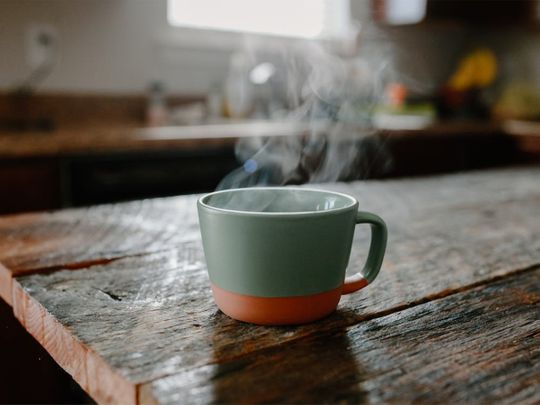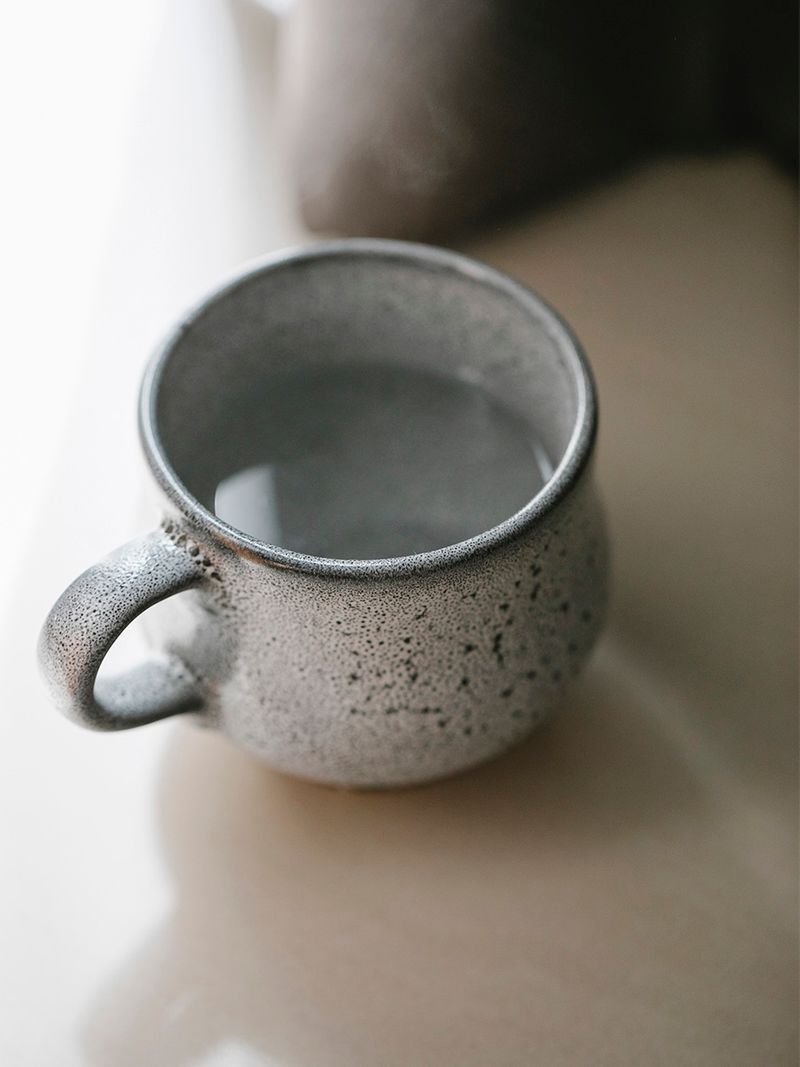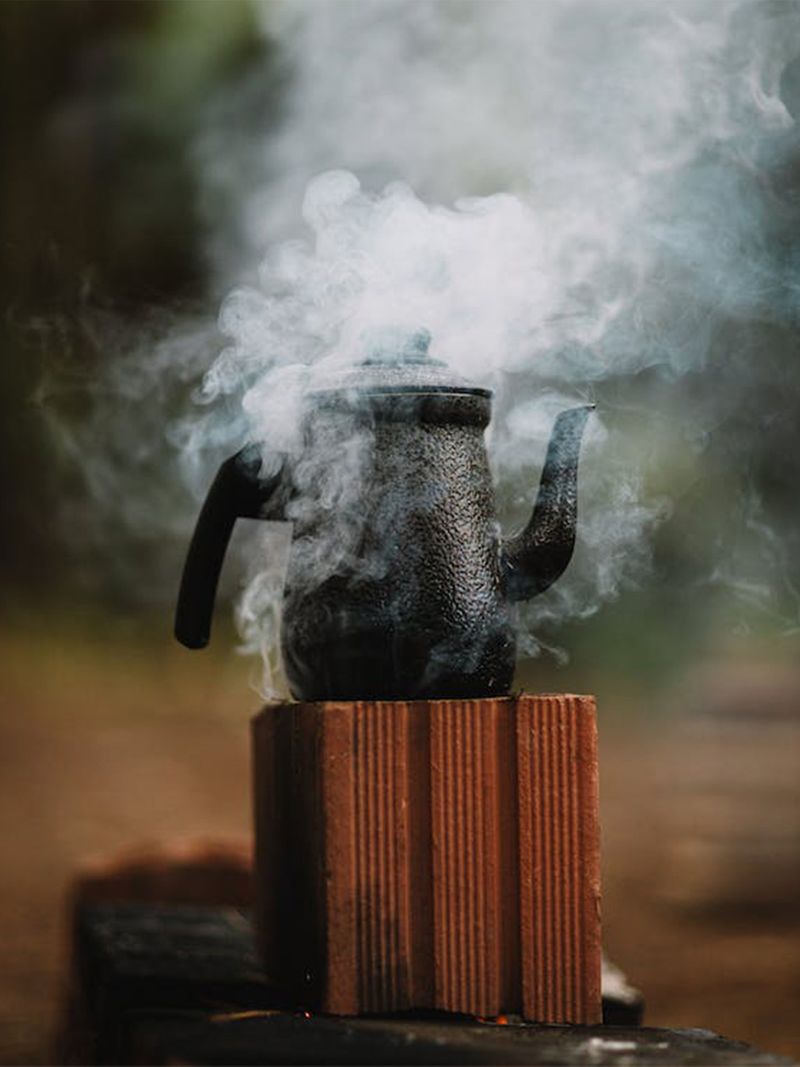
Dubai: At the beginning of November, 2022, Japan’s food and beverage giant Asahi introduced bottled hot water to the public.
The 50 to 60 degrees Celsius drink is sold in 340ml plastic bottles at 105JPY (Dh2.86) or 113JPY (Dh3.07) depending on the store, according to the reporter Touka Nagase at Time Out Tokyo.
Increasing demand for hot water in Japan
Asahi stated on PR Times, that it decided to launch the product due to the increasing demand for plain hot water in Japan, and the fact that many customers have pointed out the unavailability of it in convenience stores, when they need one.
It says that the percentage of Japanese people who drink plain hot water, has been increasing yearly, from 11.8 per cent in 2009 to 61.0 per cent in 2022.
In their survey, participants reported the craving of plain hot water on frigid late autumn or winter mornings, as an alternative to caffeine-contained hot beverages, such as coffee and tea – the drink serves the purpose of warming consumers up without the jittery caffeine effects.
Upon launching, it stirred polar opinions on social media in Japan. According to an article on Sora News 24, online reactions are generally positive, but it’s not everyone’s cup of tea.
Depending on where you are from, you might be confused and have some questions over the need for hot water. However, Japan might not be your country to ask questions - China is.

China and its billions of thermoses
The nation’s fixation on hot water is hard to miss – it’s served virtually everywhere you go in China, throughout all seasons, including simmering summers.
Hot water dispensers are conveniently distributed at public transportation facilities, and in front of them, there is always a queue of people with a thermos clutched in their hands.
Many foreign visitors to China share the same confusion – they are served hot water at restaurants. Though they can ask for cold water, not all restaurants can fulfil their requests - particularly in winter, cold drinks are not always available, as some restaurants are not customised for this unpopular request.
In fact, hot water is even served to thousands of delegates at national level conferences. As Nicole Liu from Los Angeles Times describes, “Brigades of young women… are toting thermoses around the massive building all day, pouring drinks for delegates. Some use the steaming hot liquid to make tea… but many others simply drink it straight.”
Liu also shared her conversation with a Lebanese flight attendant from a UAE-based airline, who learnt very quickly what Chinese passengers need on a flight. “One big difference between Chinese tourists and non-Chinese is that you’ll be called for ‘re shui’ or hot water in Chinese,” said the flight attendant.

So, why the national enthusiasm for hot water in China?
This is the question that many foreign visitors to China ask.
Apart from ‘warming up’ one’s body on a crisp winter morning, and ‘an alternative to caffeine-contained hot beverages’, there is much more in China’s habit of sipping on ‘re shui’.
Although there is no confirmed answer on when Chinese people started drinking hot water, an article written by blogger Chao Mo Jun on Tencent’s news channel – new.qq.com, stated that the scale marks found on the inside of early potteries (roughly from 2500 to 3500 BC), and scorch marks at the bottom of them, indicate the possibility of early human habit of drinking boiled water, in nowadays Shandong province in China.
Chinese medicine
“Huangdi Neijing, an ancient Chinese medical book says, ‘When healthy qi [energy] exists inside, evil cannot interfere with your body.’ Paying attention to heat preservation within your body can help maintain your immunity. Drinking hot water, minimising the consumption of cold or raw food and allowing your body to rest will help you preserve qi, “ Peng Gao, Chinese medicine doctor from the Dubai-based traditional Chinese medical clinic Tong Ren Tang, told Gulf News.
The 38-year-old doctor said, “As the Chinese proverb says - ‘Tens of thousands of diseases rise from the cold.’ It’s important to keep warm. Our body’s source of energy is food. If you mix food with cold water, the spleen and stomach may be harmed due to the extreme change in temperature and become weak – making absorption of nutrients difficult.
“On the contrary, drinking hot water will keep the spleen and stomach warm and elevate your body’s energy.”

Hot water cannot be consumed if it’s scalding hot, it should be cooled till the temperature is slightly higher than your body temperature, so that you feel a warm sensation when drinking it.
Gao specifically said that the common cold virus infection is prone to aggravate in a cold environment, leading to a series of diseases – in this case, keeping your body warm by drinking hot water, will help you fight the virus a great deal.
He also suggested that hot water cannot be consumed if it’s scalding hot, it should be cooled till the temperature is slightly higher than your body temperature, so that you feel a warm sensation when drinking it.
The legend of hot water in China
Several online reports mentioned the legend of how the habit of drinking hot water kept southern Chinese protected from the cholera epidemic in 1862, which originally broke out in Shanghai, then spread northward.
It’s said that southern Chinese at the time drank more hot water than northern Chinese. Boiling water would have removed contaminants, as cholera spreads through contaminated water and food. Finally the reason of cholera’s northward travel proved to be through merchant ships and drinking hot water certainly became more popular following that.
High temperature in boiling water kills certain bad microorganisms. It is more hygienic to drink, especially if the water source is not filtered and disinfected properly.

Nation-wide promotion
Again, according to several online reports, drinking boiled water was promoted by the Chinese government in the 1930s, as one of its essentials in the ‘New Life Movement’, to protect people from infectious diseases, especially those transmitted through water sources.
Later, in the 1950s, the consumption of boiled water was addressed again during the national health campaign, which centred around four topics: public environmental sanitation, control of disease-causing biological vectors such as insects, popularisation of health knowledge, and the strengthening of health organisations.
It’s said that during this period, hot water suppliers slowly became available in public areas – due to the scarcity of energy source used to boil water, not every individual had the means or could afford boiling water at home.
In Shanghai and surrounding regions, these suppliers were called ‘laohu zao’ (tiger stove) – the name was based on the shape of the stove.
‘Tiger stove’ or hot water suppliers selling boiled water at a price, have nearly disappeared nowadays. Though every household could easily boil water at home, hot water dispensers are still all round in public places in case someone wants to fill their empty thermos.

Younger generation’s attitude towards hot water in China
The historical and medical influence on hot water consumption, has continued even now. It’s not rare to see a Chinese person in their 30s, or even 20s, walking around with hot water bottles. However, their attachment to hot water is certainly not as strong as the past generations.
With easy accessibility to international food and beverages in Chinese cities, the younger generation’s taste buds became more ‘adaptive’. Some might even distance themselves from hot water deliberately, and label it as “old fashioned”. Cold beverages are commonly ordered by them, especially in the sweltering heat of a summer day – however, while they enjoy a cold can of soda, their older relatives will likely be on the side, lecturing them on how harmful it is.
Warm water drinking habit in southern India
In her 2018 article on New Delhi Television (NDTV)’s exclusive website for food, writer Sushmita Sengupta explained southern India’s love for warm water, during and after meals, even when the heat could potentially ‘melt the toughest of skins’.
“One of the best benefits of drinking hot water with meals is said to be its impact on digestion. The practice is believed to be tied with ancient Ayurvedic teachings,” she wrote.
“According to Ayurneda, doing so (drinking chilled water) can disturb the normal functioning of the gastric juices and also upset the balance of doshas [energy]. Experts claim that chilled water … contract your blood vessels, thereby, restricting digestion.
“On the other hand, drinking lukewarm water makes the process of digestion less cumbersome for the body … Lukewarm water also facilitates better elimination of toxins, stimulate hunger, soothe throat, cleanse bladder,” she further explained.
Note: This article was first published on May 17, 2023
As per Oxford Languages, in Ayurvedic medicine, dosha comprises three energies that circulate in the body, and govern physiological activity. Their differing proportions determine individual temperament and physical constitution. When unbalanced, it will cause a disposition toward particular physical and mental disorders.













